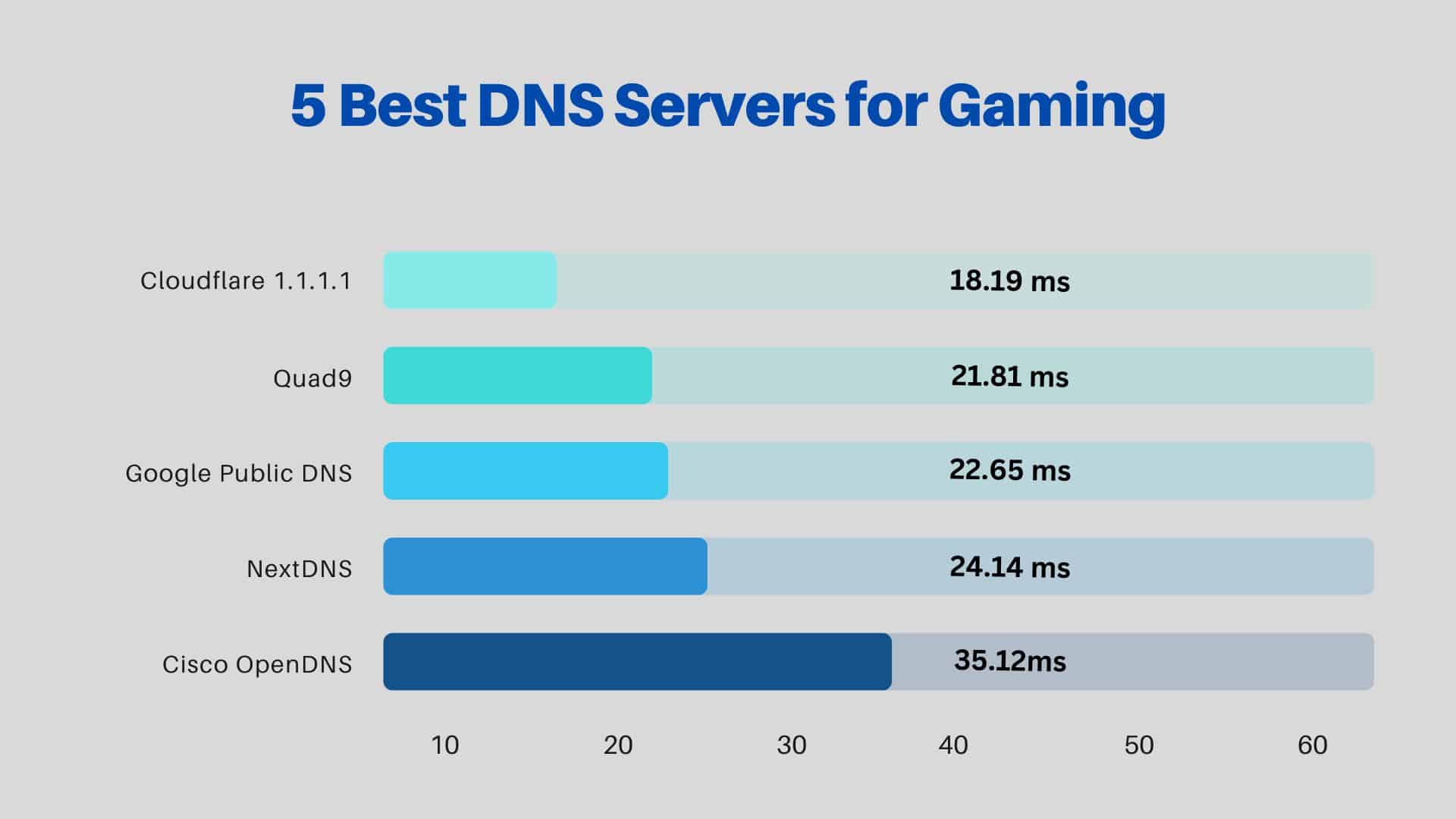In today’s hyper-connected world, a slow internet connection can feel like a major setback. While factors like your internet service provider (ISP) and network congestion play significant roles, the Domain Name System (DNS) server you use is often overlooked. Choosing a reliable and efficient DNS server can dramatically improve your browsing experience, making websites load faster and reducing frustrating delays.
As giaithichtengoi.com highlights, the right DNS server can be the difference between a seamless online experience and a frustrating one. This comprehensive guide explores some of the top-rated DNS servers available, helping you choose the perfect one to optimize your internet speed and performance.
Understanding DNS Servers: The Unsung Heroes of the Internet

Before diving into specific DNS server recommendations, let’s briefly explain what DNS servers are and why they’re so crucial for your internet experience. In essence, DNS servers act as translators. When you type a website address (like google.com) into your browser, your computer doesn’t understand that directly.
Instead, it queries a DNS server to translate that human-readable domain name into a machine-readable IP address (a numerical identifier). Once the IP address is obtained, your computer can connect to the server hosting the website and display the content.
A slow or unreliable DNS server can lead to noticeable delays in website loading times, connection errors, and overall sluggish internet performance. Conversely, a fast and reliable DNS server ensures quick lookups, resulting in a much smoother browsing experience. The choice of DNS server can significantly impact your daily internet usage.
Top-Rated DNS Servers: A Detailed Comparison
Google Public DNS
- Addresses: 8.8.8.8 and 8.8.4.4
- Strengths: Widely known for speed, reliability, and security features. Google’s massive infrastructure ensures high availability and low latency. Offers good privacy protection and is globally accessible.
- Weaknesses: Some users report occasional minor hiccups, although these are infrequent. Relies on Google’s infrastructure, which might be a concern for privacy-conscious individuals.
Cloudflare DNS (1.1.1.1)
- Addresses: 1.1.1.1 and 1.0.0.1
- Strengths: Known for its speed and privacy features. Cloudflare’s commitment to privacy is a major selling point, with no user tracking or logging of DNS queries. Provides excellent performance globally.
- Weaknesses: Similar to Google Public DNS, the performance relies on Cloudflare’s infrastructure. While privacy is a focus, complete anonymity is never fully guaranteed online.
OpenDNS
- Addresses: 208.67.222.222 and 208.67.220.220
- Strengths: Provides robust security features, including protection against phishing and malware. Offers various subscription tiers with advanced features. Long-standing reputation for reliability.
- Weaknesses: Free version has fewer features compared to paid options. Speed might not be as consistently fast as Google Public DNS or Cloudflare DNS.
Quad9
- Addresses: 9.9.9.9 and 149.112.112.112
- Strengths: Focuses on security and privacy, blocking malicious websites and enhancing online safety. Provides excellent performance in many regions. Transparency and a non-profit backing inspire confidence.
- Weaknesses: Security-focused approach might result in slightly slower query times compared to pure speed-focused DNS servers. Features are more security-oriented than speed-optimized.
DNS.WATCH
- Addresses: 84.200.69.80
- Strengths: A privacy-focused option that logs no data. Simple and effective, offering a solid baseline performance.
- Weaknesses: Limited features compared to larger providers. Performance might be less consistent across different regions.
Comodo Secure DNS
- Addresses: 8.26.56.26 and 8.20.247.20
- Strengths: Prioritizes security by filtering out malicious websites. Good performance and reliability for many users.
- Weaknesses: Fewer users than the top contenders, leading to potentially less data on overall performance. Features are primarily security-centric.
Norton ConnectSafe
- Addresses: 199.85.126.10 and 199.85.127.10
- Strengths: Family-friendly option with strong filtering capabilities to block inappropriate content. Good for households with children.
- Weaknesses: Filtering might be overly aggressive for some users. Speed might not be as fast as some other options.
Choosing the Right DNS Server for Your Needs
The “best” DNS server ultimately depends on your individual priorities. Consider these factors:
- Speed: If speed is your top priority, Google Public DNS and Cloudflare DNS are excellent choices.
- Privacy: Cloudflare DNS and DNS.WATCH are strong contenders if maximizing privacy is paramount.
- Security: OpenDNS, Quad9, and Comodo Secure DNS offer robust security features to protect against malicious websites and threats.
- Family-Friendly Features: Norton ConnectSafe provides strong filtering options for families with children.
- Geographic Location: Consider servers with data centers located closer to your physical location for faster response times.
Experiment with different DNS servers to determine which one provides the optimal balance of speed, security, and privacy for your specific internet usage patterns. Many routers and operating systems allow you to easily change your DNS settings. This simple change can significantly impact your online experience.
Beyond the Basics: Advanced DNS Settings and Considerations
While choosing a reputable DNS server is a crucial first step, exploring additional DNS settings can further enhance your internet experience. These options might be available in your router’s configuration or your operating system’s network settings:
- DNS over HTTPS (DoH): Encrypts DNS queries, providing added security and privacy. Many modern browsers and operating systems support DoH.
- DNS over TLS (DoT): Similar to DoH, but uses TLS encryption instead of HTTPS. Offers enhanced security for DNS queries.
- DNSSEC: DNS Security Extensions adds a layer of validation to ensure that the DNS responses you receive are authentic and haven’t been tampered with. This enhances the security of your internet connection.
Exploring these advanced settings can significantly bolster your online security and privacy while potentially improving performance. However, keep in mind that some of these features might require more technical knowledge to configure correctly.





